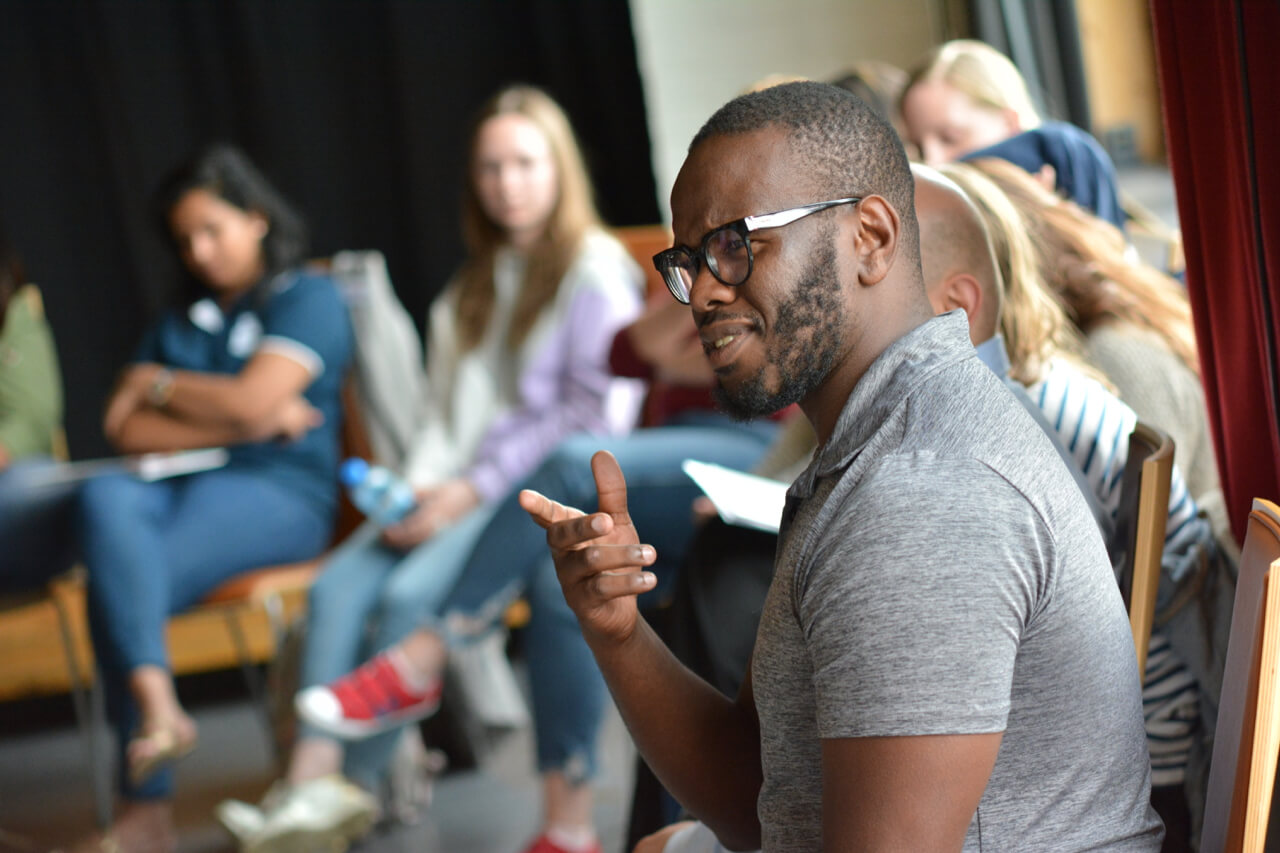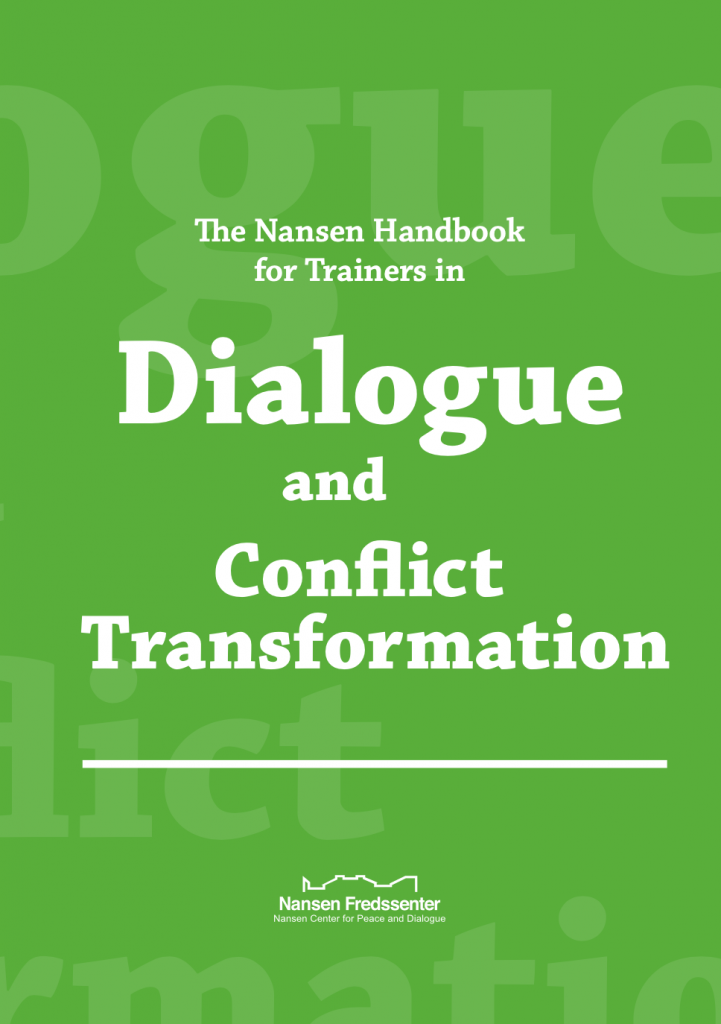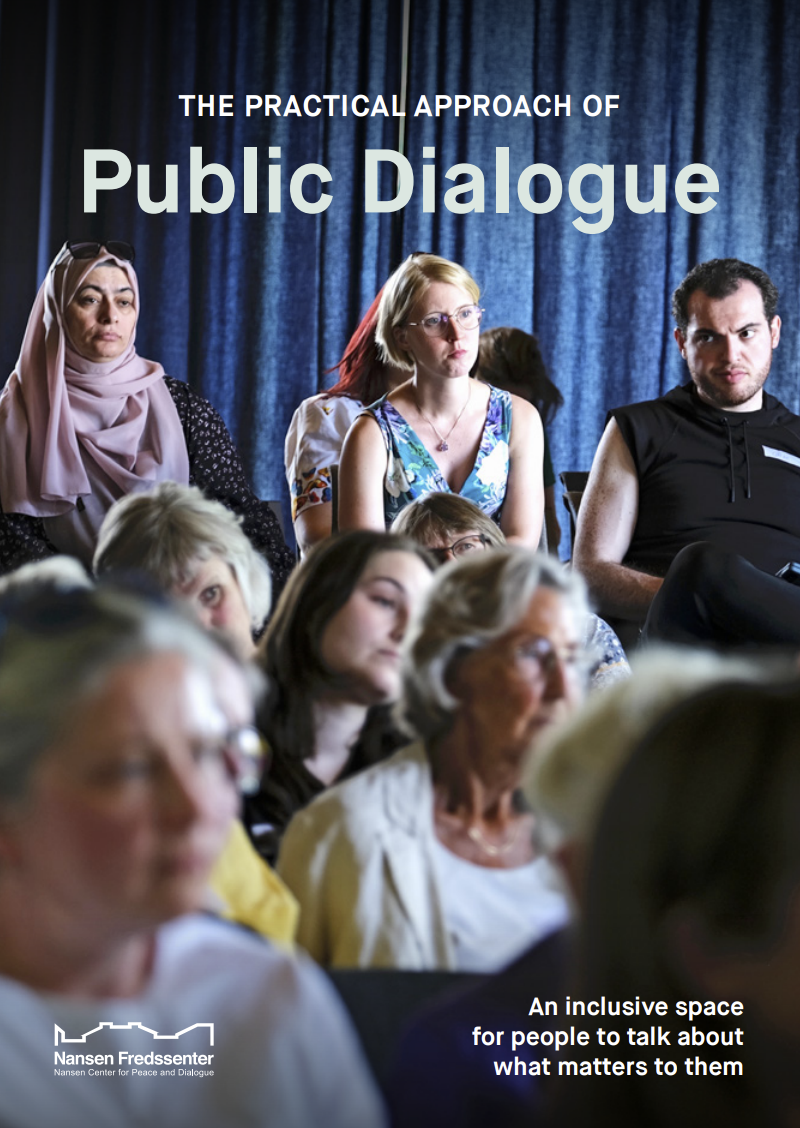Handbooks
In our handbooks, we share knowledge, exercises, and tips on how to initiate dialogue activities for yourself. The books are primarily developed to support our course participants but can also be useful resources to anyone interested in dialogue, peace work and conflict transformation.

The Nansen Handbook for Trainers in Dialogue and Conflict Transformation
How to facilitate processes where everyone is included and listened to? What does it take for people in a conflict to meet and talk together? The Nansen Center for Peace and Dialogue’s handbook provides exercises and tools for initiating a dialogue process – including descriptions of various underlying reasons for conflicts.
In this handbook, we present methods and practical tools which can be used to build trust among groups and individuals, and to transform conflicts into new opportunities. This book includes several activities and exercises applied in our courses and teaching programs, and when facilitating dialogue processes.
This handbook is primarily developed for those who work with dialogue and conflict transformation, but can also be a useful resource for anyone who works with interpersonal relationships. If you are interested in learning more about this method, read more about our courses.
This book has been developed based on the Nansen Center’s many years of experience with dialogue work in Norway and internationally. Our methodology is also inspired by the works of several leading practitioners and theorists focusing on dialogue, peace and reconciliation.
This handbook has also been translated into Spanish, Polish, Dari, and Mapudungun.

The Practical Approach of Public Dialogue
How can one facilitate important conversations in a local community? This book offers a practical introduction on how to facilitate public dialogues, a concept developed by the Nansen Center for Peace and Dialogue.
A public dialogue is a facilitated dialogue of public interest. This form of dialogue can be open gatherings for anyone who wants to attend, or closed dialogue meetings for invited parts of a community or group.
This approach is particularly useful for addressing sensitive, conflicted, or controversial topics. In a public dialogue, participants have space to share their personal stories and thoughts, and perhaps build trust and better understanding across differences.
dialogues can, among other things, contribute to; counteract polarization and tensions in a local community; ensure inclusive processes and decision-making; create a safe conversation space for difficult topics; lifting events, events and important conversations in a local community.
Nansen Center for Peace and Dialogue offers courses in this method. Read more on our courses page.

